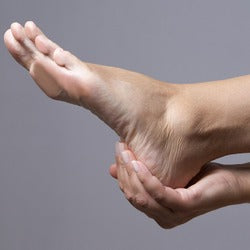Importance of Diabetic Foot Screening Tests
Diabetes is a challenging condition that affects millions of people worldwide. One of the lesser-known complications associated with diabetes is foot problems, which can lead to severe issues if not managed properly. Diabetic foot screening tests play a crucial role in preventing these complications. In this article, we will explore why diabetic foot screenings are important and how they can help individuals maintain healthy feet.
Diabetes can cause various complications, including neuropathy and poor blood circulation, both of which can contribute to foot problems. Neuropathy, or nerve damage, can result in a loss of sensation in the feet, making it difficult for individuals to notice injuries or infections. Poor circulation further exacerbates these issues by slowing down the healing process.
Common Diabetic Foot Problems
Diabetic individuals are at risk for several foot-related issues, including:
-
Ulcers: Open sores that can develop due to unnoticed injuries.
-
Infections: Resulting from cuts or blisters that go unnoticed.
-
Charcot Foot: A condition where bones in the foot weaken and fracture.
-
Amputations: Severe infections or ulcers may lead to the need for amputation.
What is a Diabetic Foot Screening Test?
A diabetic foot screening test is a routine examination performed by healthcare professionals to check for signs of neuropathy, poor circulation, and other foot-related issues. These screenings are essential for early detection and prevention of serious complications.
Key Components of a Diabetic Foot Screening
-
Visual Examination: Checking for cuts, blisters, or swelling.
-
Pulse Check: Assessing blood circulation in the feet.
-
Neuropathy Test: Using a monofilament or tuning fork to test sensation.
-
Footwear Assessment: Evaluating the appropriateness of shoes.
Why Are Diabetic Foot Screenings Important?
Regular foot screenings are vital for individuals with diabetes for several reasons:
Early Detection of Issues
Foot problems often start small but can quickly escalate if not addressed. Regular screenings allow healthcare providers to identify potential issues before they become severe.
Prevention of Serious Complications
By catching problems early, screenings help prevent more serious complications, such as ulcers or infections, that can lead to hospitalisation or even amputation.
Maintaining Mobility and Quality of Life
Healthy feet are essential for maintaining mobility and independence. Regular screenings help ensure that individuals with diabetes can continue to lead active, fulfilling lives.
The Role of Supportive and Orthopaedic Shoes
Footwear plays a critical role in preventing diabetic foot complications. Supportive and orthopaedic shoes are designed to provide comfort, support, and protection for diabetic feet.
Features of Supportive Shoes
-
Cushioning: Reduces pressure on sensitive areas.
-
Breathability: Prevents moisture buildup that can lead to infections.
-
Proper Fit: Ensures no rubbing or pinching that could cause blisters.
Choosing the Right Shoes for Diabetic Feet
When selecting shoes for diabetic feet, it's important to consider the following:
-
Consult with a Professional: A healthcare provider or podiatrist can recommend suitable footwear.
-
Look for Special Features: Shoes with extra depth, seamless interiors, and adjustable closures are ideal.
-
Prioritise Comfort and Fit: Shoes should fit well and feel comfortable from the first wear.
How to Perform a Diabetic Foot Self-Exam
While professional screenings are crucial, individuals can also perform self-exams to monitor their foot health between appointments.
Steps for a Self-Exam
-
Inspect Daily: Look for cuts, blisters, or any changes in color or temperature.
-
Check Between Toes: Ensure no debris or moisture is trapped.
-
Feel for Sensation: Lightly touch different areas to check for numbness or tingling.
-
Monitor Changes: Keep track of any new developments and report them to a healthcare provider.
When to Seek Professional Help
If you notice any of the following symptoms during a self-exam, contact a healthcare professional immediately:
-
Persistent pain or swelling
-
Sores that do not heal
-
Changes in skin color or temperature
-
Signs of infection, such as redness or pus
Conclusion
Diabetic foot screening tests are a vital component of diabetes management. Regular screenings help detect potential issues early, prevent serious complications, and ensure individuals with diabetes maintain healthy, functional feet. Alongside professional screenings, wearing appropriate footwear and performing regular self-exams are crucial steps in managing diabetic foot health. By taking proactive measures, individuals with diabetes can protect their feet and preserve their quality of life.








